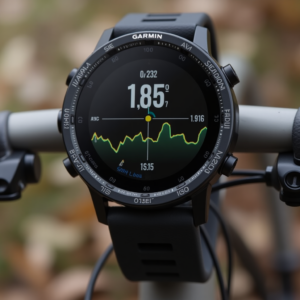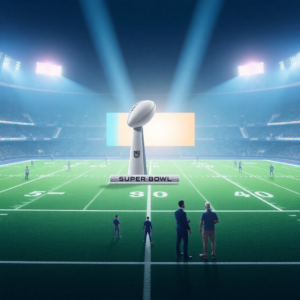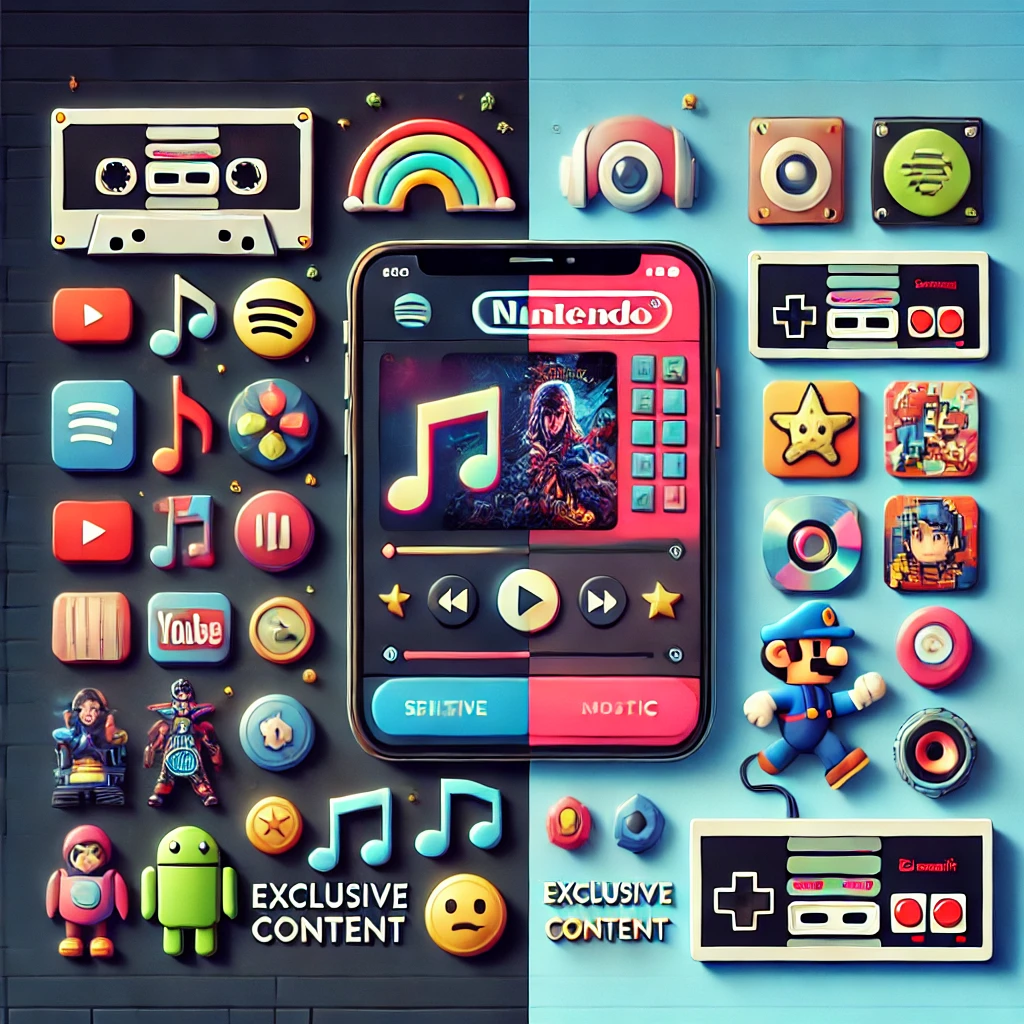
In the world of video game soundtracks, few names inspire the same level of nostalgia and admiration as Nintendo. From the memorable tunes of The Legend of Zelda to the joyful melodies of Super Mario, Nintendo’s music has shaped generations of gamers and non-gamers alike. Now, Nintendo has made waves in the industry by launching its own music app, positioning itself against major players like Spotify and YouTube. This move marks a significant pivot in the company’s strategy, long known for its guarded approach to intellectual property (IP). But what does this new venture mean for fans and for the industry as a whole? Let’s dive into an in-depth analysis.
1. Nintendo’s Legacy in Video Game Music
Nintendo’s music catalog is legendary. The company’s focus on music as a core element of gameplay dates back to the early days of Donkey Kong and Super Mario Bros.. These soundtracks were composed to create memorable experiences and have since become iconic in their own right. Names like Koji Kondo, known for his work on Super Mario and The Legend of Zelda, have become synonymous with excellence in video game composition.
Despite this strong legacy, Nintendo has remained cautious about distributing its music outside its own ecosystem. Historically, the company has only allowed select soundtracks to be available on CD and has rarely ventured into mainstream music streaming services
.
Why the Hesitation?
Nintendo’s reluctance to share its music on third-party platforms stems from its commitment to control over its IP. This cautious approach ensures that its assets are used in ways that align with the brand’s image and values. However, this has left fans wanting more, often turning to unofficial uploads on YouTube and fan-made playlists to enjoy their favorite game tunes.
2. The Shift: Enter the Nintendo Music App
Nintendo’s decision to launch a proprietary music app is a monumental shift. This app aims to offer a centralized platform where fans can access official soundtracks, exclusive playlists, and curated collections of music from various Nintendo games. The move suggests that Nintendo is finally tapping into a market that it has long ignored, despite a clear demand from its fanbase.
Features to Expect
The app reportedly boasts a sleek interface that mirrors the whimsical aesthetic of Nintendo’s games. It offers exclusive access to high-quality soundtracks from beloved series like Super Mario, The Legend of Zelda, Animal Crossing, and Metroid. Users can browse curated playlists or dive into specific game soundtracks.
Interactive Elements: Speculation suggests that the app might introduce interactive features unique to Nintendo. These could include custom playlists that adapt based on the user’s favorite games or even mini-games tied to the music
3. What Sets the App Apart from Spotify and YouTube?
To stand out in a saturated streaming market dominated by platforms like Spotify, Apple Music, and YouTube, the Nintendo Music app needs to offer something different. Here are key differentiators:
Exclusive Content
Unlike other platforms that host a mix of gaming music alongside mainstream tracks, Nintendo’s app is set to be a one-stop shop for its catalog. Fans will have access to exclusive tracks not available anywhere else, as well as complete soundtracks for new and upcoming games. This exclusivity alone can draw in die-hard fans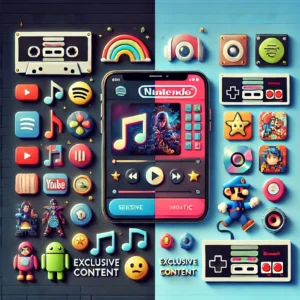
.
A Unique Listening Experience
Nintendo has always thrived on its ability to deliver unique experiences. The app might feature interactive elements, such as the ability to unlock hidden tracks by completing challenges or exploring different parts of the app. Such gamified elements would be in line with Nintendo’s reputation for blending entertainment with engagement.
Integration with the Nintendo Ecosystem
A seamless connection with other Nintendo platforms, such as the Switch console, could allow users to access their favorite game music directly from their devices. This integration could also open up possibilities for synchronized music experiences while gaming.
4. Challenges and Potential Limitations
A Limited Library?
One concern is the scope of the app’s library. Nintendo’s strict IP policies mean that only soundtracks from fully-owned games may be featured. This could exclude music from collaborative projects or games where rights are shared. Fans could find popular franchises like Super Smash Bros. notably absent from the catalog due to complex licensing issues
Competitive Edge and User Experience
While the app is tailored for Nintendo enthusiasts, it needs to offer an intuitive user experience comparable to mainstream music apps. Without user-friendly navigation and engaging features, it may struggle to keep users who are already comfortable with their current streaming service.
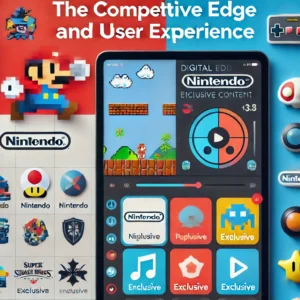
5. Why Now? Understanding Nintendo’s Timing
The timing of this launch could be due to various factors:
1. Increased Demand for Gaming Soundtracks
The popularity of video game music has surged in recent years. Songs like Zelda’s Lullaby or Jump Up, Super Star! have become mainstream hits, enjoyed beyond the gaming community. Platforms like YouTube have millions of views on unofficial uploads of these songs, signaling a clear demand that Nintendo now seeks to capitalize on
.
2. Control Over IP and Monetization
By creating its own music app, Nintendo retains full control over how its music is distributed and monetized. This ensures that revenue goes directly to the company, instead of being shared with third-party platforms. Moreover, it protects the brand from unauthorized use or altered uploads that might detract from the original work.
3. Trends in Digital Consumption
With streaming now the norm for consuming music, video, and other content, Nintendo may have recognized that entering this space is necessary to remain relevant in a digital-first era. This move mirrors strategies employed by other gaming giants like SEGA, which has made its soundtracks available on Spotify and other platforms
6. The Industry’s Reaction and Fan Sentiment
Reactions to the news have been mixed. While many fans are excited about the chance to access official versions of their favorite soundtracks, some remain skeptical. Concerns have been voiced regarding the completeness of the library and whether it will include more obscure or niche titles.
Positive Reception
Many enthusiasts see this as a long-awaited move. The ability to listen to high-quality Nintendo soundtracks without navigating through unauthorized uploads or dealing with takedown notices is a welcomed change. This could become a preferred platform for die-hard fans who appreciate Nintendo’s unique sound
.
Criticism and Skepticism
Others worry that Nintendo’s conservative approach may lead to a limited app that fails to compete with the expansive libraries of mainstream services. Additionally, potential subscription fees or tiered access could deter casual listeners who might prefer free or more affordable alternatives.
7. What This Means for the Streaming Industry
Nintendo’s entry into the music streaming market could set a precedent for other game developers and publishers. If successful, we might see similar apps from other major gaming companies, further diversifying the streaming landscape. However, to truly compete with Spotify or YouTube, Nintendo would need to continuously update its catalog and innovate with exclusive features.
Potential Impacts
- Licensing Agreements: Nintendo’s model could influence how other gaming companies manage music rights. We might see new licensing models that prioritize exclusive distribution through proprietary apps.
- New Revenue Streams: If Nintendo’s app proves profitable, it could encourage more companies to develop similar services as a way to monetize their soundtracks.
- Fan Expectations: This move sets a new standard for fan engagement. Other companies may be pressured to create dedicated spaces for fans to interact with and appreciate game soundtracks.
8. The Future of Gaming Music
The gaming industry is in a golden age of music production, with scores that rival those of blockbuster films. With increasing attention on game soundtracks as an art form, Nintendo’s app could signify a shift in how such music is perceived and consumed.
Beyond Streaming
Nintendo’s move may also pave the way for future innovations, such as virtual concerts or interactive experiences. Imagine a concert where attendees can control the setlist or a music-based game integrated with the app. The possibilities are numerous, and Nintendo is well-positioned to lead these creative endeavors.
Collaborations and Partnerships
If successful, the app could open doors for collaborations with artists outside the gaming industry. Remix albums, collaborations, and live performances could all become part of the Nintendo music experience, broadening its appeal and fan base.
9. Conclusion: A New Era for Nintendo Fans?
The launch of the Nintendo Music app marks an exciting new chapter for both the company and its fans. By bringing its celebrated soundtracks to a dedicated platform, Nintendo is finally acknowledging the demand for accessible, high-quality game music. While there are challenges to overcome, the app’s potential to reshape how we experience video game music is significant.
For fans, this is more than just an app—it’s a bridge to nostalgia, an avenue to relive favorite gaming moments, and a platform to celebrate one of the most distinctive aspects of Nintendo’s legacy. Time will tell how the app evolves and whether it will meet expectations, but one thing is clear: Nintendo’s foray into music streaming is already making waves.
Call to Action:
What do you think about Nintendo’s decision to launch its own music app? Are you excited, or do you have reservations? Share your thoughts in the comments below!
All credit for the visual inspiration and related content goes to Nintendo Switch and their associated brand elements. This image and discussion are designed to represent concepts relating to their brand in an illustrative manner.
